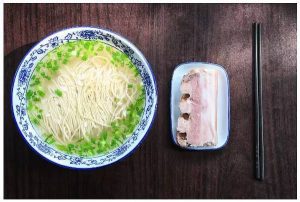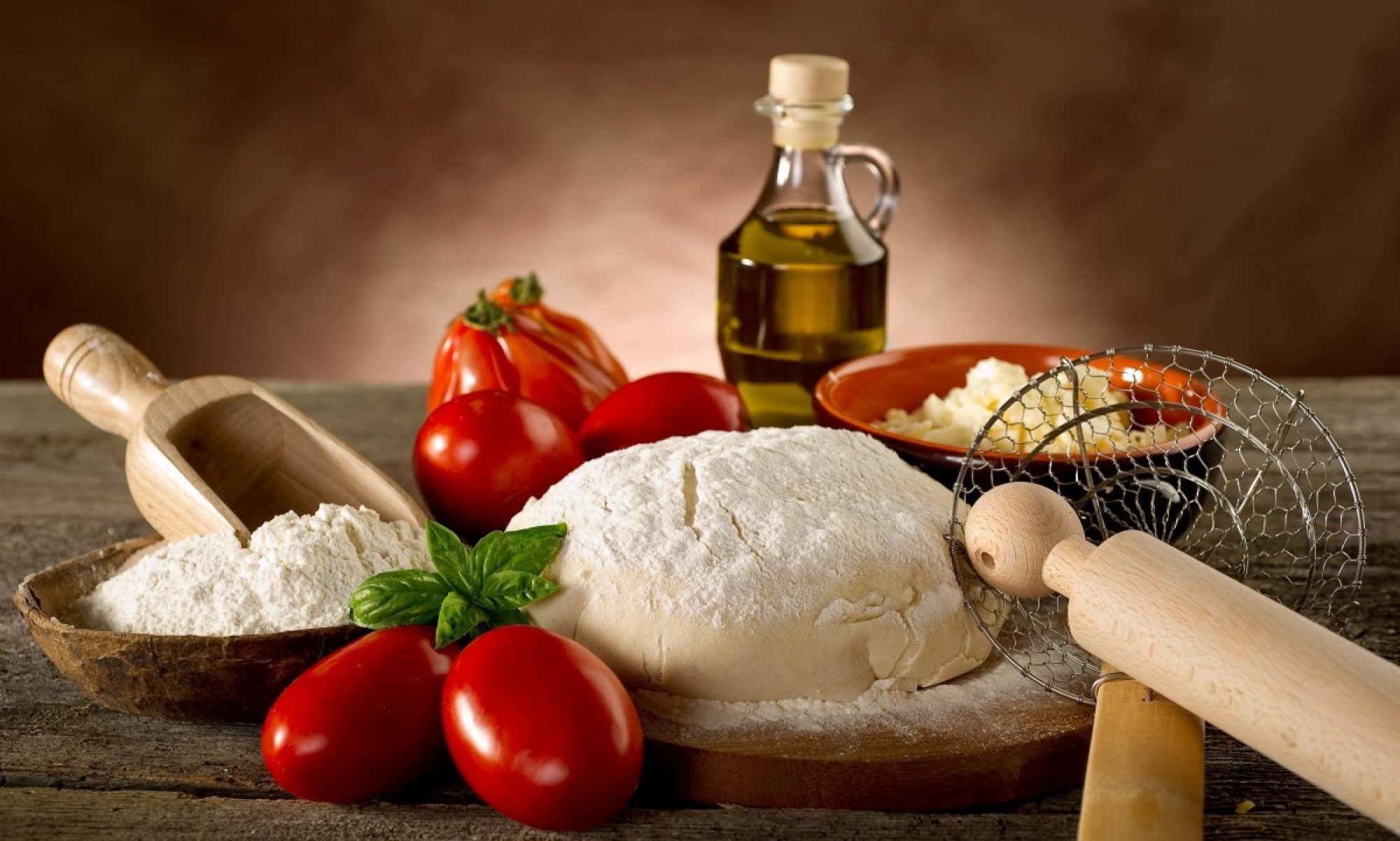Alex Shen, CHN-370W, assignment 1
I was born and raised in Suzhou, China, where noodles plays an important role in both the culture of the city and people’s routine life, therefor it is no surprise that my favorite dish of all time is the noodles in Suzhou. Both my parents came to Suzhou after they graduated from college, and have been living here since then. For almost thirty years of living in this city, they were adapted to the food here and that is one of the reasons why I can enjoy the noodles. Among food of Suzhou, noodles is one of the most important and famous. There are countless noodle restaurants in Suzhou, which half of the citizens of Suzhou spend their time in them for breakfast. It’s like a tradition, a habit that is owned by all of the citizens. Noodles is also popular in north and west of China, where it is considered the staple food. But unlike noodles in these regions where people favor the texture of the thick noodles, noodles in Suzhou are thin and long, and the flavor of the soup is more important. My father has been a fan of noodles in Suzhou since he came here, and that greatly influenced me, and he is also the one that first led me to one of the noddle restaurants. It’s somewhat like an unspoken “rule” of this city to pass this love for noodles from generation to generation. I still remember that until high school, my dad would take me to school every day, with a stop by a noodle restaurant. It became a daily ritual of our family, and my dad and I could not start a day’s work or study without a noodle breakfast.
When I tried the noddles here for the first time, I became a fan of it simply because it was delicious. Noodles in Suzhou is quite different from that of the north——it’s thinner, longer, and more smooth. The soup is also important, it’s made from fish and pig bones, combined with soy sauce and other spices. Finally, there are so many kinds of toppings for it——beef, pork, bamboo shoots, fish and so on——I could literally have different kinds of toppings for half a month. So my journey with noodles started because it was so delicious. But as time went on, it became more than that, to a way of my life. I know that it was totally unscientific to say I couldn’t start my day without noodles for breakfast, but it’s a way of saying how much noodles means to me. If I skip a noodle breakfast, I would be constantly thinking about it for the entire day and couldn’t focus on anything. My dad was busy when I was young, so “noodle time” was also the only time I had with my dad every day. It might be strange that the conversations between a father and a son happened mostly over breakfast, but those little conversations actually partly made me who I am today. My dad would always finish his noodles first and then start to talk to me, and since I would still be eating, I listened most of the time while my dad did the talking. He would ask me about school, about mom, about girls I like, and then talk about his own work, although I couldn’t understand a thing at that time. After we finish it and get into the car, we would listen to to the morning news from the radio and comment on them, but mine were naive and straightforward while his were more insightful(I assumed it was since I also couldn’t understand what he was talking about). This kind of daily activity lasted till high school, when I had to get up at 6 am to get to school and only had time for a quick breakfast at home, but over these years I was able to learn the way my dad looked at things and people, and that helped a lot for my building of values and the way I see the world. Right now I am studying at Emory University, but the first thing I do when I get back home is to go for a noodle breakfast with my parents.
About the history of it. Due the difference in climates, rice was mainly grew and cultivated in south and wheat in the north, so noodles was not a popular type of food in Suzhou until the Song dynasty, when the capital of the country was move to Hangzhou. A capital is always the center of all kinds of culture, so wheat was brought to the south by business men from the north. Because Suzhou was a rich city back then, those business men stayed here to further development. As they grew acclimatize to Suzhou food, they also made people of Suzhou to start growing wheat and consuming noodles. After some modification to noddles, making it thinner and longer, and the soup sweeter, people of Suzhou created their own kind of noodles that it different from any other in China. Right now, noodle consumption in Suzhou can be comparable to that of cities in the north, which could show how much people of Suzhou love noodles.
Recipe for noodles of Suzhou:
First use pig bones, chicken, beef fat, sugar, broad bean and ginger to make the soup for noddles. Second, make the toppings. There are several most popular toppings, but actually you can make anything you like. Finally, put the noodles in boiled water for two or three minutes and then put everything together.



Hi, Alex, this is an amazing response to the journal prompt. I particularly enjoyed the sections in which you talked about your noodle breakfast ritual with your father. I’m so glad that noodles have assumed such an important role in connecting you and your father together while you were growing up. I can well imagine how you listened and ate your noodle when you dad talked and asked questions. Even though this wonderful tradition has to be cut short after high school, I’m sure you’ve accumulated enough fond memories for a lifetime! After you came to Emory, have you tried Atlanta’s local restaurants? I know it would never be same, but perhaps you can somehow satiate your longing for Suzhou noodle? In comparison, the research paragraph and the recipe that followed are weaker and less impressive. I wish you’d focus on the specialty of Suzhou noodle and its difference from noodles in the North–you mentioned Suzhou cuisine’s influence, I wonder if the toppings are a southern development? Loving the photo!